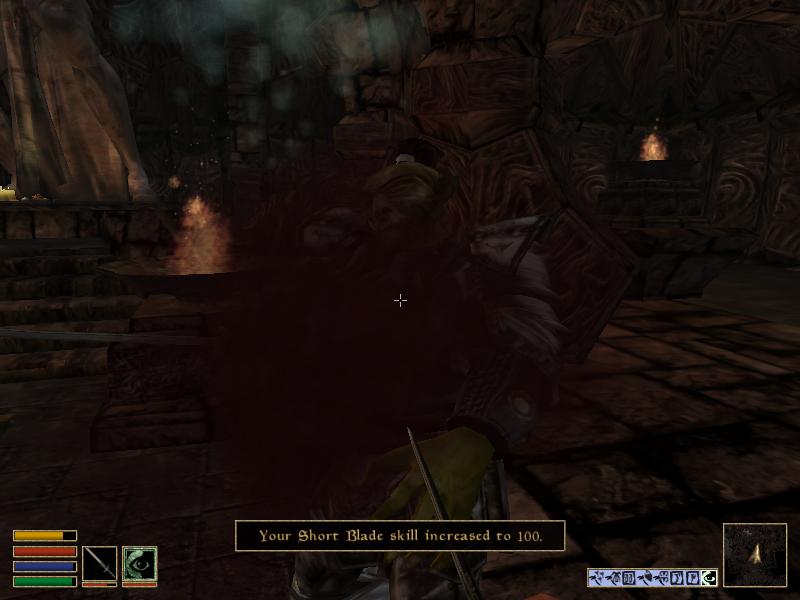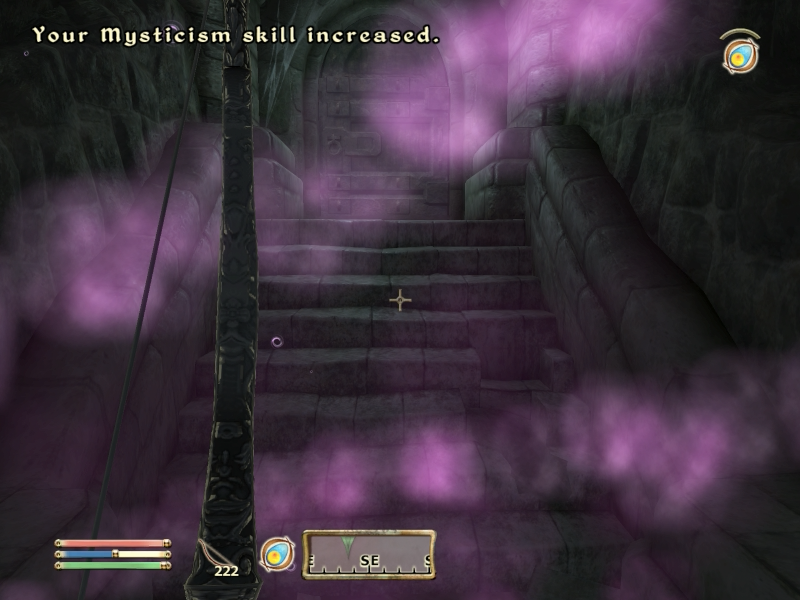First, a bit of housekeeping: in my previous post, I misidentified an individual in an animated gif as Andrew Wilson, CEO of Electronic Arts--this person was, in fact, Charles Montgomery Burns, CEO of the Springfield Nuclear Power Plant. An honest mistake!
Now, on with the show...
Last time, I talked about attribute systems, and how The Sims, in its earliest iterations (i.e. TS1 and TS2) had a system that was pretty similar to the traits from Pendragon.
This time, I'd like to talk about skills.
Skills
So, what is a skill, in terms of roleplaying games?
If an attribute is who your character is, then a skill is what they can do. Their talents, their hobbies, their interests... things that matter to them, essentially, which can then be quantified, usually as a number.
However, some games--Vampire: The Masquerade comes to mind--might use alternative jargon. "Dots", for instance, in V:tM.
How good are you at Painting? Five.
How much do you enjoy Animal Husbandry? Seven.
How easily can you identify a magic spell being cast? I can do it four.
You know, just like in real life.
So, okay, let's look at skills in The Sims. Because, spoiler alert, they have them.
By later Sims games, every possible activity you could think of typically had its own skill. Homestyle Cooking vs. Gourmet Cooking, Vampire Lore, Acting, Juice Fizzing (essentially making kombucha), Rock Climbing (but also, every other physical activity is still lumped under Fitness).
Practice Makes Perfect
An interesting thing about skills in the Sims series is that they use a "learn by doing" system. The more you practice a skill, the more experience points you accumulate. Once you reach the level-up threshold, that skill increases in value.
It's a very Elder Scrolls way of doing things. I wonder if Will Wright played Daggerfall?
This one comes from the user Paulina, over at Fantasy Topics
From top to bottom: Morrowind, Oblivion, Skyrim.
My first thought--because my goal here is to design a Sims-like TTRPG--is an experience point-based skill gain system would be a LOT of bookkeeping.
Games like Dungeons & Dragons have you track all sorts of things--experience points, but also spell slots, inventory, hit points, even arrows, if your Dungeon Master is a sadist! So, would multiple EXP tracks really be that bad?
I think it depends on how much EXP, personally. 5 to 10 points per level up? That's not outrageous. But also, maybe there's a better way?
Roll for Shoes, by Ben Wray does some interesting things with skill gain (props to Erika Ishii's two-shot, A County Affair, over at Worlds Beyond Number for introducing me to this system--you should all go give it a listen).
Basically, in Roll for Shoes, you start with a single skill, called Do Anything, which is at rank 1, meaning you roll 1d6. When you roll all sixes (no matter how many dice in your pool), you gain a new skill related to that new skill, at one rank higher, which means you also roll that many dice for that skill (so for a rank 2 "Read", you'd get 2d6, for rank 3 "Reverse Read", i.e., writing, you'd get 3d6, and so on). You also gain EXP for failures, which can then be used to advance your rank in your existing skills.
The fun thing about dice pools, is that it becomes harder and harder to have matching dice, the more dice you have.
Here's a quick-and-dirty table I threw together to explain (for the purposes of this table, a "match" is a pair of dice with the same value, so you can't have 1 match, it's always going to be more than one die):
| Possible Matches | Dice Pool | Likelihood (%) |
|---|---|---|
| 2 | 2d6 | 16.67% |
| 2 | 3d6 | 41.67% |
| 3 | 3d6 | 2.78% |
| 2 | 4d6 | 62.5% |
| 3 | 4d6 | 9.26% |
| 4 | 4d6 | Practically Impossible |
| 2 | 5d6 | 69.44% |
| 3 | 5d6 | 19.29% |
| 4 | 5d6 | 1.93% |
| 5 | 5d6 | Practically Impossible |
| 2 | 6d6 | 61.73% |
| 3 | 6d6 | 31.51% |
| 4 | 6d6 | 4.82% |
| 5 or Higher | 6d6 | Practically Impossible |
The long and short of it is, the more dice you have, the harder it is to match your dice. It's never easy to get all your dice to match (2d6 have a 16.67% chance, 3d6 have a two percent chance, and you can forget about 4, 5, or 6d6!), but it's a system that favours "beginner's luck".
So, the less experienced you are overall, the easier you'll pick up new skills, but once you have multiple skills reach the 3rd or 4th rank, you're pretty much settled into your niche.
This has potential for my TTRPG. You learn by doing, meaning if you crit while attempting something new, you gain a new skill (like a flash of sudden insight, where it all just CLICKS), but if you fail, you get points that you can allocate to an existing skill's rank at level up. We'll call this Learn From Your Mistakes in my tentative system.
The more you try new things, the more successful you are. The more you fail, the more opportunities you have for self-advancement. Yeah. I like this.
For my version of the "Do Anything" skill, I don't know why, but I'm really leaning towards Primate Cognition. Reject humanity, become monke.
Next time, on Nobody Poops on Television: games of chance!




Comments
Post a Comment